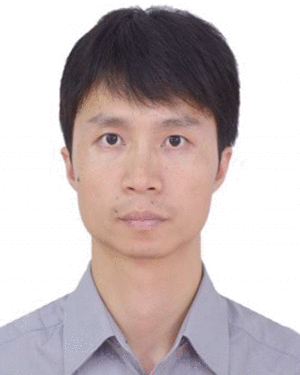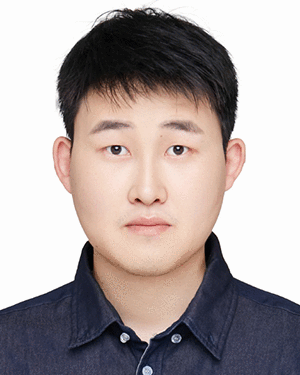Abstract:
Federated Learning (FL), allowing data owners to conduct model training without sending their raw data to third-party servers, can enhance data privacy in Mobile Edge Com...Show MoreMetadata
Abstract:
Federated Learning (FL), allowing data owners to conduct model training without sending their raw data to third-party servers, can enhance data privacy in Mobile Edge Computing (MEC) which brings data processing closer to the data sources. However, the heterogeneity of local data and constrained local resources in MEC bring new challenges hindering the development of FL. To this end, we propose an Auction-based Cluster Federated Learning scheme, called ACFL, comprising a clustered FL framework and an auction-based client selection strategy. Our clustered FL framework first introduces a mean-shift clustering algorithm to FL, which can intelligently cluster clients according to their local data distribution. Then, we select clients from each cluster using an auction mechanism to participate in FL training, which can mitigate the impact of data heterogeneity on model convergence and balance energy consumption. Moreover, we prove the proposed clustered FL framework converges at a sublinear rate. Extensive experiments conducted on real-world datasets demonstrate that the proposed FL scheme outperforms the conventional FL schemes in terms of convergence rate and energy balance.
Published in: IEEE Transactions on Parallel and Distributed Systems ( Volume: 34, Issue: 4, 01 April 2023)
Funding Agency:

School of Cyberspace Science, Harbin Institute of Technology, Harbin, China
Renhao Lu received the BS degree in computer science from Henan Normal University, Xinxiang, China, in 2016, and the MS degree from the Department of Computer Science and Information Security, Guilin University of Electronic Technology, Guilin, China, in 2019. He is currently working toward the EngD degree with the School of Computer Science and Technology, Harbin Institute of Technology, Harbin. His current research inte...Show More
Renhao Lu received the BS degree in computer science from Henan Normal University, Xinxiang, China, in 2016, and the MS degree from the Department of Computer Science and Information Security, Guilin University of Electronic Technology, Guilin, China, in 2019. He is currently working toward the EngD degree with the School of Computer Science and Technology, Harbin Institute of Technology, Harbin. His current research inte...View more

School of Cyberspace Science, Harbin Institute of Technology, Harbin, China
Department of New Networks, Peng Cheng Laboratory (PCL), Shenzhen, China
Weizhe Zhang (Senior Member, IEEE) received the PhD degree in computer science from the Harbin Institute of Technology (HIT), Harbin, China, in 2006. He is currently a professor with the School of Computer Science and Technology, Harbin Institute of Technology, Harbin, China, and director with the Department of New Networks, Peng Cheng Laboratory, Shenzhen, China. He has authored or coauthored more than 130 academic paper...Show More
Weizhe Zhang (Senior Member, IEEE) received the PhD degree in computer science from the Harbin Institute of Technology (HIT), Harbin, China, in 2006. He is currently a professor with the School of Computer Science and Technology, Harbin Institute of Technology, Harbin, China, and director with the Department of New Networks, Peng Cheng Laboratory, Shenzhen, China. He has authored or coauthored more than 130 academic paper...View more

Department of Computing, Macquarie University, Sydney, NSW, Australia
Yan Wang (Senior Member, IEEE) received the BEng, MEng, and DEng degrees in computer science and technology from the Harbin Institute of Technology (HIT), P.R. China, in 1988, 1991, and 1996, respectively. He is currently a professor with the Department of Computing, Macquarie University, Sydney, Australia. His research interests include trust computing, recommender systems, social computing, and service computing.
Yan Wang (Senior Member, IEEE) received the BEng, MEng, and DEng degrees in computer science and technology from the Harbin Institute of Technology (HIT), P.R. China, in 1988, 1991, and 1996, respectively. He is currently a professor with the Department of Computing, Macquarie University, Sydney, Australia. His research interests include trust computing, recommender systems, social computing, and service computing.View more

School of Cyberspace Science, Harbin Institute of Technology, Harbin, China
Qiong Li received the BS, MS, and PhD degrees in instrument science from the Harbin Institute of Technology, Harbin, Heilongjiang, China, in 1997, 1999, and 2005, respectively. She is currently a professor with the School of Cyberspace Science, Harbin Institute of Technology, Harbin, China. She has authored or coauthored two books, more than 50 articles, and holds more than 20 authorized patents. Her research interests in...Show More
Qiong Li received the BS, MS, and PhD degrees in instrument science from the Harbin Institute of Technology, Harbin, Heilongjiang, China, in 1997, 1999, and 2005, respectively. She is currently a professor with the School of Cyberspace Science, Harbin Institute of Technology, Harbin, China. She has authored or coauthored two books, more than 50 articles, and holds more than 20 authorized patents. Her research interests in...View more

Department of New Networks, Peng Cheng Laboratory (PCL), Shenzhen, China
Xiaoxiong Zhong (Member, IEEE) received the PhD degree in computer science from the Harbin Institute of Technology, Harbin, China, in 2015. He was a postdoctoral research fellow with Tsinghua University, China, from 2016 to 2018. He is currently an assistant professor with Peng Cheng Laboratory, Shenzhen, China. His general research interests include network protocol design and analysis, data transmission, and data analys...Show More
Xiaoxiong Zhong (Member, IEEE) received the PhD degree in computer science from the Harbin Institute of Technology, Harbin, China, in 2015. He was a postdoctoral research fellow with Tsinghua University, China, from 2016 to 2018. He is currently an assistant professor with Peng Cheng Laboratory, Shenzhen, China. His general research interests include network protocol design and analysis, data transmission, and data analys...View more

School of Cyberspace Science, Harbin Institute of Technology, Harbin, China
Hongwei Yang is currently working toward the PhD degree with the School of Cyberspace Science, Harbin Institute of Technology, China. His research interests include transfer learning, information security, and Big Data analysis.
Hongwei Yang is currently working toward the PhD degree with the School of Cyberspace Science, Harbin Institute of Technology, China. His research interests include transfer learning, information security, and Big Data analysis.View more

School of Cyberspace Science, Harbin Institute of Technology, Harbin, China
Desheng Wang received the BS degree in computer science and engineering from Harbin Engineering University, China, in 2015. He is currently working toward the PhD degree with the School of Cyberspace Science, Harbin Institute of Technology. His research interests include virtualization techniques for cloud-edge computing and machine learning, etc.
Desheng Wang received the BS degree in computer science and engineering from Harbin Engineering University, China, in 2015. He is currently working toward the PhD degree with the School of Cyberspace Science, Harbin Institute of Technology. His research interests include virtualization techniques for cloud-edge computing and machine learning, etc.View more

School of Cyberspace Science, Harbin Institute of Technology, Harbin, China
Renhao Lu received the BS degree in computer science from Henan Normal University, Xinxiang, China, in 2016, and the MS degree from the Department of Computer Science and Information Security, Guilin University of Electronic Technology, Guilin, China, in 2019. He is currently working toward the EngD degree with the School of Computer Science and Technology, Harbin Institute of Technology, Harbin. His current research interests include federated learning and secure multi-party computation.
Renhao Lu received the BS degree in computer science from Henan Normal University, Xinxiang, China, in 2016, and the MS degree from the Department of Computer Science and Information Security, Guilin University of Electronic Technology, Guilin, China, in 2019. He is currently working toward the EngD degree with the School of Computer Science and Technology, Harbin Institute of Technology, Harbin. His current research interests include federated learning and secure multi-party computation.View more

School of Cyberspace Science, Harbin Institute of Technology, Harbin, China
Department of New Networks, Peng Cheng Laboratory (PCL), Shenzhen, China
Weizhe Zhang (Senior Member, IEEE) received the PhD degree in computer science from the Harbin Institute of Technology (HIT), Harbin, China, in 2006. He is currently a professor with the School of Computer Science and Technology, Harbin Institute of Technology, Harbin, China, and director with the Department of New Networks, Peng Cheng Laboratory, Shenzhen, China. He has authored or coauthored more than 130 academic papers in journals, books, and conference proceedings. His research interests include cyberspace security, cloud computing, and high-performance computing. He is a lifetime member of the ACM.
Weizhe Zhang (Senior Member, IEEE) received the PhD degree in computer science from the Harbin Institute of Technology (HIT), Harbin, China, in 2006. He is currently a professor with the School of Computer Science and Technology, Harbin Institute of Technology, Harbin, China, and director with the Department of New Networks, Peng Cheng Laboratory, Shenzhen, China. He has authored or coauthored more than 130 academic papers in journals, books, and conference proceedings. His research interests include cyberspace security, cloud computing, and high-performance computing. He is a lifetime member of the ACM.View more

Department of Computing, Macquarie University, Sydney, NSW, Australia
Yan Wang (Senior Member, IEEE) received the BEng, MEng, and DEng degrees in computer science and technology from the Harbin Institute of Technology (HIT), P.R. China, in 1988, 1991, and 1996, respectively. He is currently a professor with the Department of Computing, Macquarie University, Sydney, Australia. His research interests include trust computing, recommender systems, social computing, and service computing.
Yan Wang (Senior Member, IEEE) received the BEng, MEng, and DEng degrees in computer science and technology from the Harbin Institute of Technology (HIT), P.R. China, in 1988, 1991, and 1996, respectively. He is currently a professor with the Department of Computing, Macquarie University, Sydney, Australia. His research interests include trust computing, recommender systems, social computing, and service computing.View more

School of Cyberspace Science, Harbin Institute of Technology, Harbin, China
Qiong Li received the BS, MS, and PhD degrees in instrument science from the Harbin Institute of Technology, Harbin, Heilongjiang, China, in 1997, 1999, and 2005, respectively. She is currently a professor with the School of Cyberspace Science, Harbin Institute of Technology, Harbin, China. She has authored or coauthored two books, more than 50 articles, and holds more than 20 authorized patents. Her research interests include post processing of quantum cryptography, multimedia security, and biometrics.
Qiong Li received the BS, MS, and PhD degrees in instrument science from the Harbin Institute of Technology, Harbin, Heilongjiang, China, in 1997, 1999, and 2005, respectively. She is currently a professor with the School of Cyberspace Science, Harbin Institute of Technology, Harbin, China. She has authored or coauthored two books, more than 50 articles, and holds more than 20 authorized patents. Her research interests include post processing of quantum cryptography, multimedia security, and biometrics.View more

Department of New Networks, Peng Cheng Laboratory (PCL), Shenzhen, China
Xiaoxiong Zhong (Member, IEEE) received the PhD degree in computer science from the Harbin Institute of Technology, Harbin, China, in 2015. He was a postdoctoral research fellow with Tsinghua University, China, from 2016 to 2018. He is currently an assistant professor with Peng Cheng Laboratory, Shenzhen, China. His general research interests include network protocol design and analysis, data transmission, and data analysis in Internet of Things and edge computing.
Xiaoxiong Zhong (Member, IEEE) received the PhD degree in computer science from the Harbin Institute of Technology, Harbin, China, in 2015. He was a postdoctoral research fellow with Tsinghua University, China, from 2016 to 2018. He is currently an assistant professor with Peng Cheng Laboratory, Shenzhen, China. His general research interests include network protocol design and analysis, data transmission, and data analysis in Internet of Things and edge computing.View more

School of Cyberspace Science, Harbin Institute of Technology, Harbin, China
Hongwei Yang is currently working toward the PhD degree with the School of Cyberspace Science, Harbin Institute of Technology, China. His research interests include transfer learning, information security, and Big Data analysis.
Hongwei Yang is currently working toward the PhD degree with the School of Cyberspace Science, Harbin Institute of Technology, China. His research interests include transfer learning, information security, and Big Data analysis.View more

School of Cyberspace Science, Harbin Institute of Technology, Harbin, China
Desheng Wang received the BS degree in computer science and engineering from Harbin Engineering University, China, in 2015. He is currently working toward the PhD degree with the School of Cyberspace Science, Harbin Institute of Technology. His research interests include virtualization techniques for cloud-edge computing and machine learning, etc.
Desheng Wang received the BS degree in computer science and engineering from Harbin Engineering University, China, in 2015. He is currently working toward the PhD degree with the School of Cyberspace Science, Harbin Institute of Technology. His research interests include virtualization techniques for cloud-edge computing and machine learning, etc.View more


